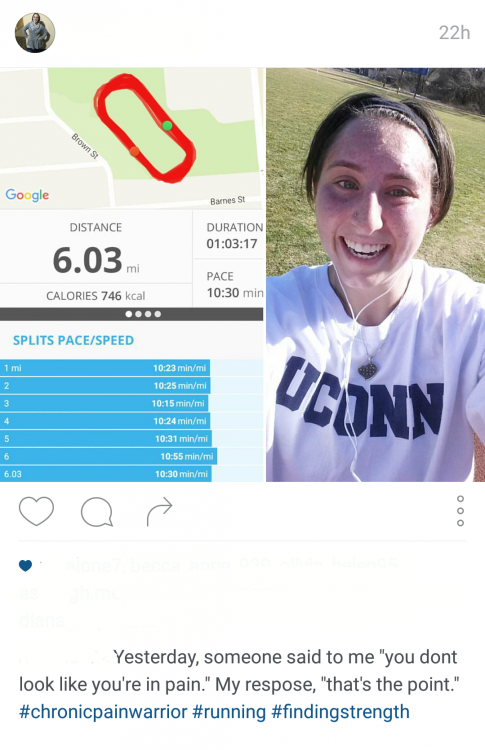3 Things I Don’t Want to Hear When I Share About My Chronic Pain (and One Thing I Do)
Sharing about my chronic pain with people isn’t a choice I make lightly. I flawlessly, intentionally waver on the line between hyper-awareness and invisibility. If I do tell someone it’s probably because I trust them or because it’s relevant in that moment. Nearly every time I share about my chronic pain, I feel other peoples’ discomfort immediately takes over. I blink and we’re no longer having a mutual, reciprocal interaction. Many people think they can chime in and offer their two cents. Honestly, I find it aggravating, minimizing and presumptuous. Also, I don’t recall ever asking for an opinion. I’m all for having respectful conversations and learning more about each other, but the scrutiny and judgment? Nah. I think I’m good without that.
Here are three things I really don’t want to hear when I share about my chronic pain.
Translation: Please don’t say these things to me. It’ll make me feel really small, hurt and frustrated.
1. “Have you tried x, y and z treatment?”
What I hear: “Trust me, I know better than you do.”
Last time I checked, you aren’t a doctor. Right? I have had people suggest pain meds, physical therapy, psychotherapy, biofeedback, hypnosis, nerve stimulation, etc. Chances are, you name it, and I’ve tried it. There is no cure for my condition. When you suggest solutions, while I’m sure your intentions are benign and this is how you’re displaying your concern, I feel like you’re incredibly uncomfortable and don’t know what to do with the information I just shared. I watch you review your mental film reel and quickly recall every time you felt pain and attempt to relate to my experience. Even if you don’t say it, I hear, “There has to be a solution.” Which undermines the fact that this condition is chronic — it’s enduring.

2. “You don’t look like you’re in pain.”
What I hear: “From my perspective, it can’t be that bad.”
If you say this to me, I’ll inevitably reply, “That’s the point.”
Chronic pain is an invisible, physical illness. If you know me well, you know when I’m in more pain. I retreat. My eyes actually sink and I get really quiet. I’m distracted and distant. I can’t focus. Sometimes I’m really fidgety because I’m so uncomfortable in my own body. That’s what it “looks like” when I’m in more pain. But you’re right. Most of the time, I don’t “look like” I’m in pain. Each day I make calculated, conscientious, deliberate choices about how much my body can handle. Whether and how my pain factors into each decision is not a choice I get to have. My pain is always a factor, but it doesn’t always have to be a limiting factor. I don’t “look like” I’m in pain when I choose to run six miles, because of or in spite of a pain flare, and champion each step! I don’t “look like” I’m in pain when I’m doing research or having coffee with friends. Luckily, my physical presentation (in this context or others) isn’t for you to judge. You just get to trust me and accept me.
3. “Wow! You’re so impressive.”
What I hear: “I’m filtering your whole life through my perception of what ‘sick’ people look like.”
I’m impressive. Yep! But, not because I have chronic pain. I’m impressive because I’m determined, intelligent and a good friend. I’m impressive because I work tirelessly to
achieve my goals. When you say, “You’re so impressive,” to me it’s as if I’m watching you add chronic pain to the ledger of my life you have in your head. I feel like you’re adding extra points to each aspect of my life (that you know about). Those extra points push me over the line into your “impressive” category. I feel your mental math minimizes how incredible I am, and all of my achievements and milestones. I’m already impressive. My diagnosis shouldn’t change your opinion of me and how amazing you think I am.
I find these statements so incredibly frustrating to hear. My illness doesn’t define me, but it is a huge and real aspect of my life. Instead, I’d rather hear “I believe you.“
Follow this journey on I’m Probably Overthinking This.
The Mighty is asking the following: What’s one thing people might not know about your experience with disability, disease or mental illness, and what would you say to teach them? If you’d like to participate, please send a blog post to community@themighty.com. Please include a photo for the piece, a photo of yourself and 1-2 sentence bio. Check out our Submit a Story page for more about our submission guidelines.
